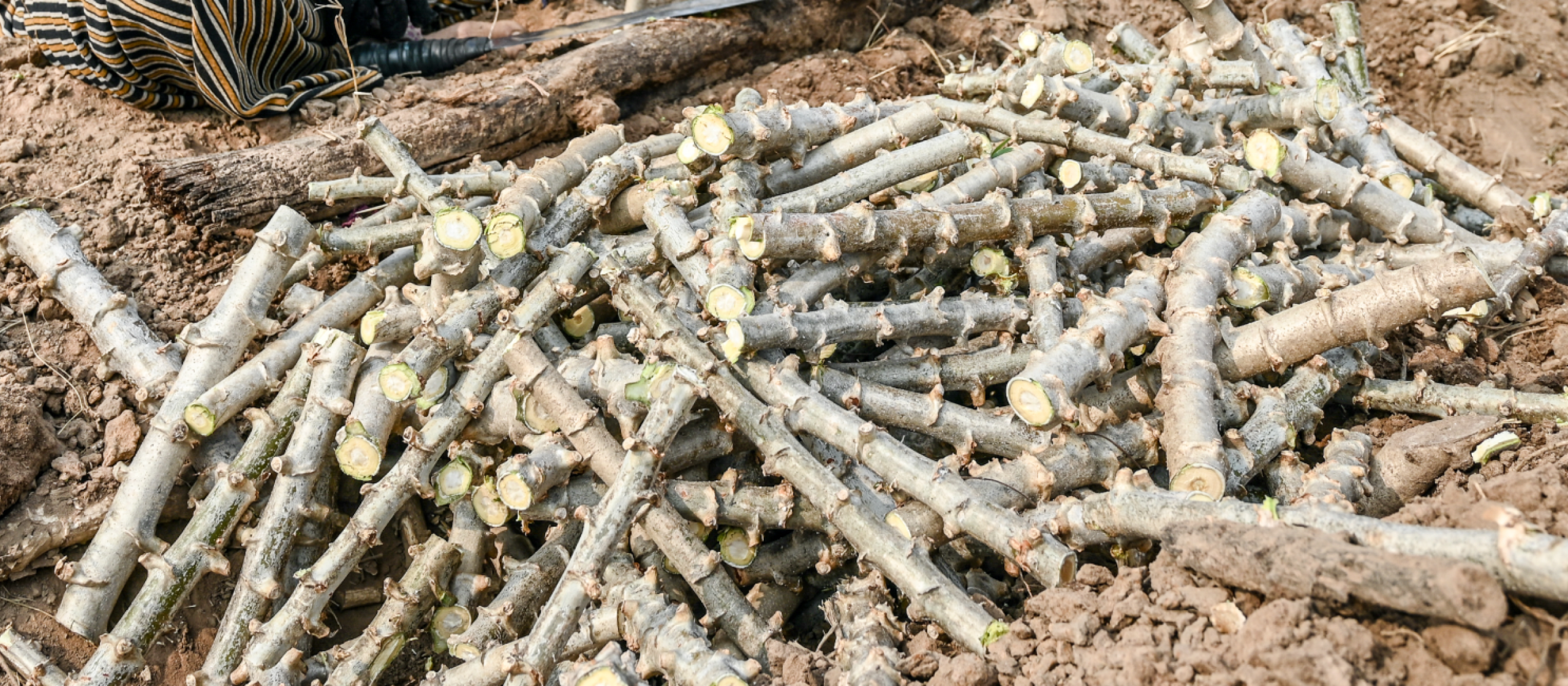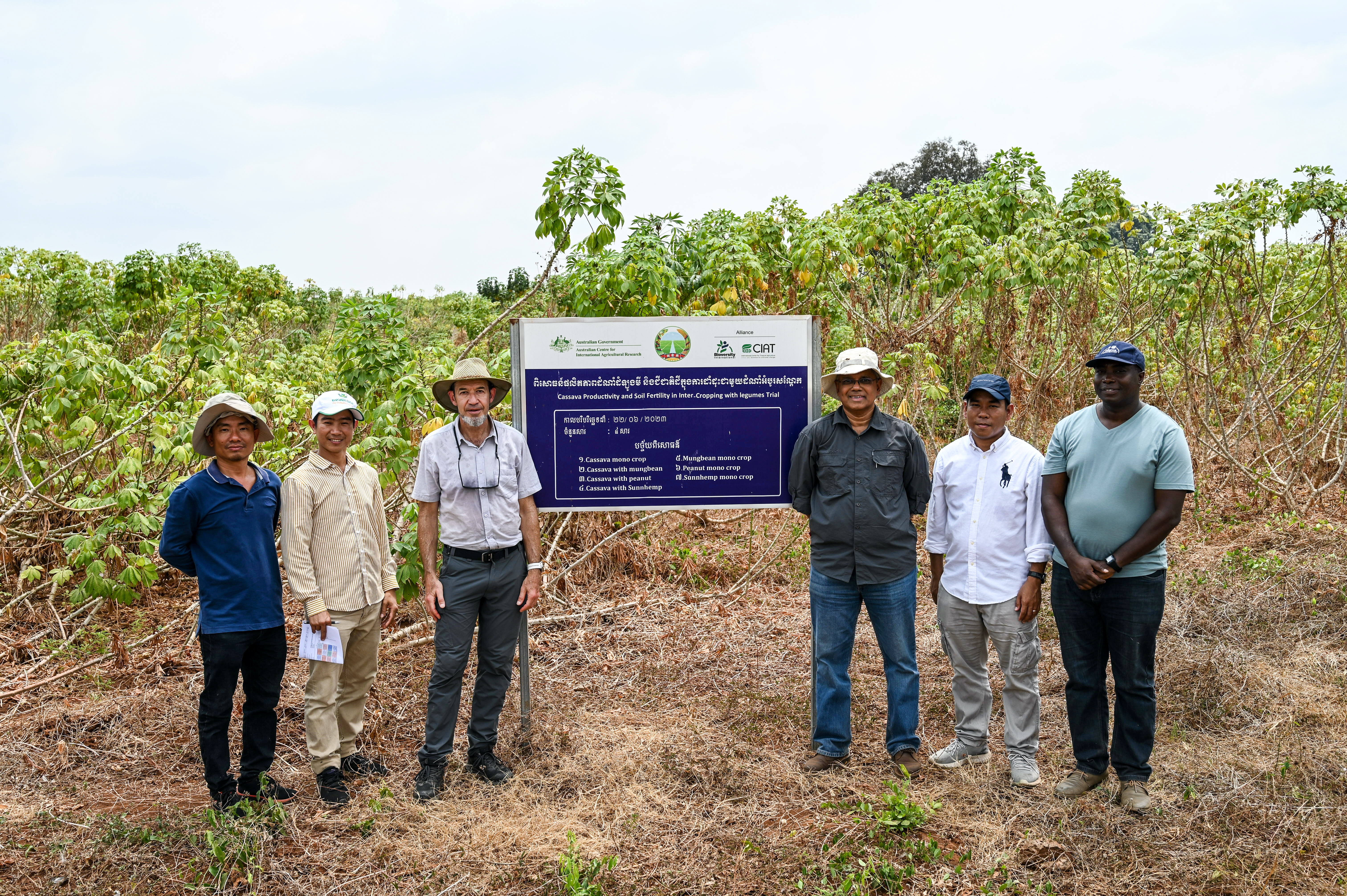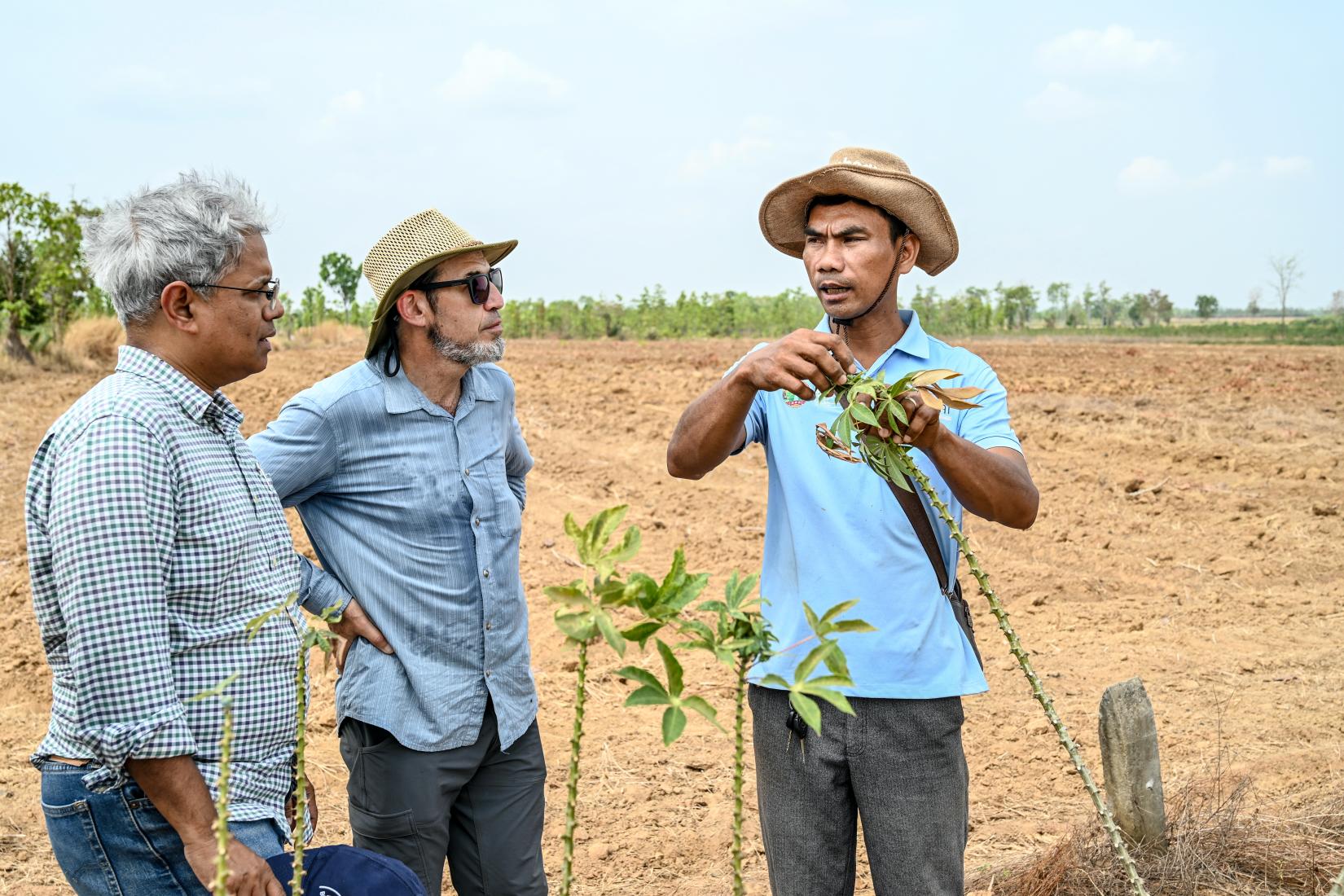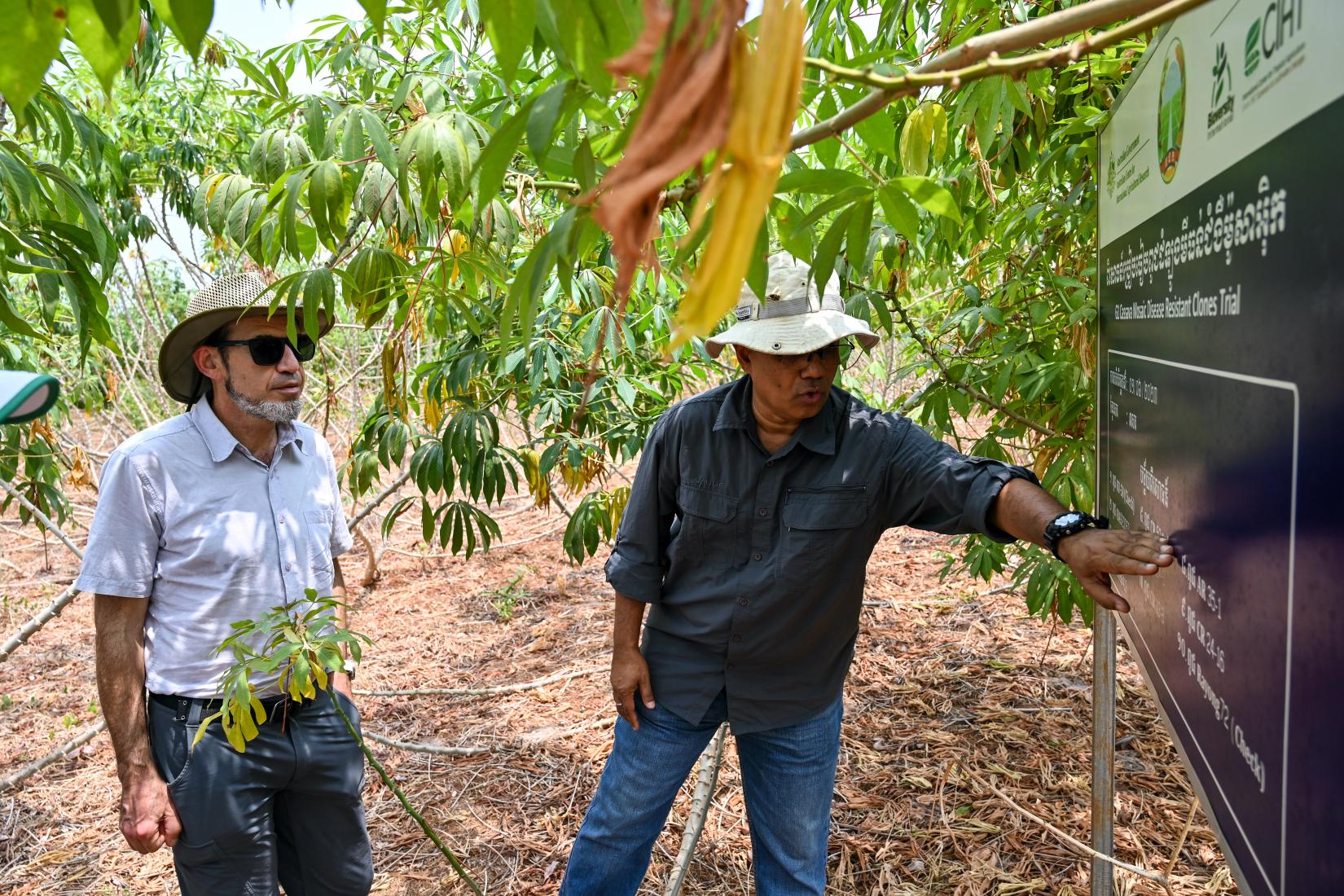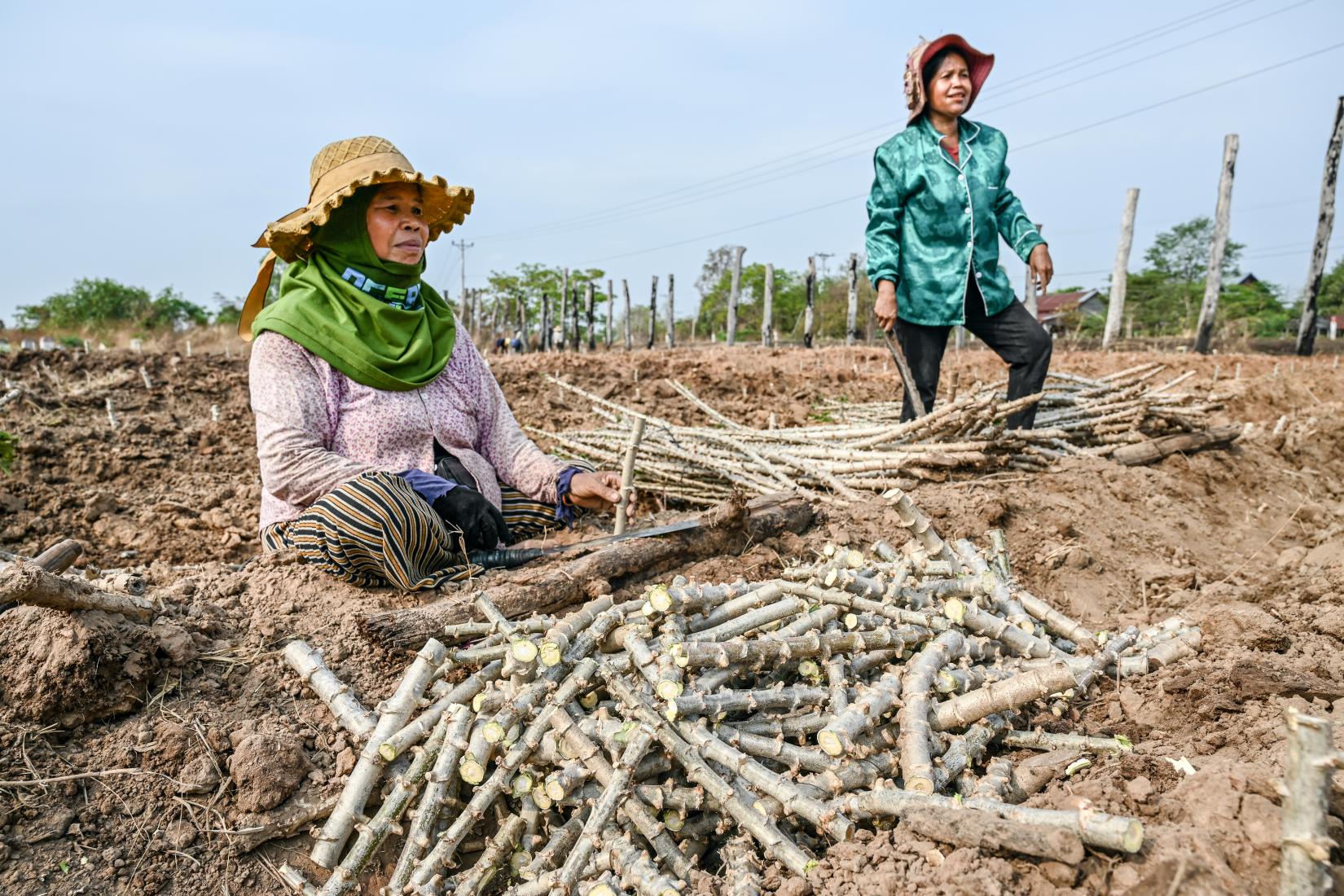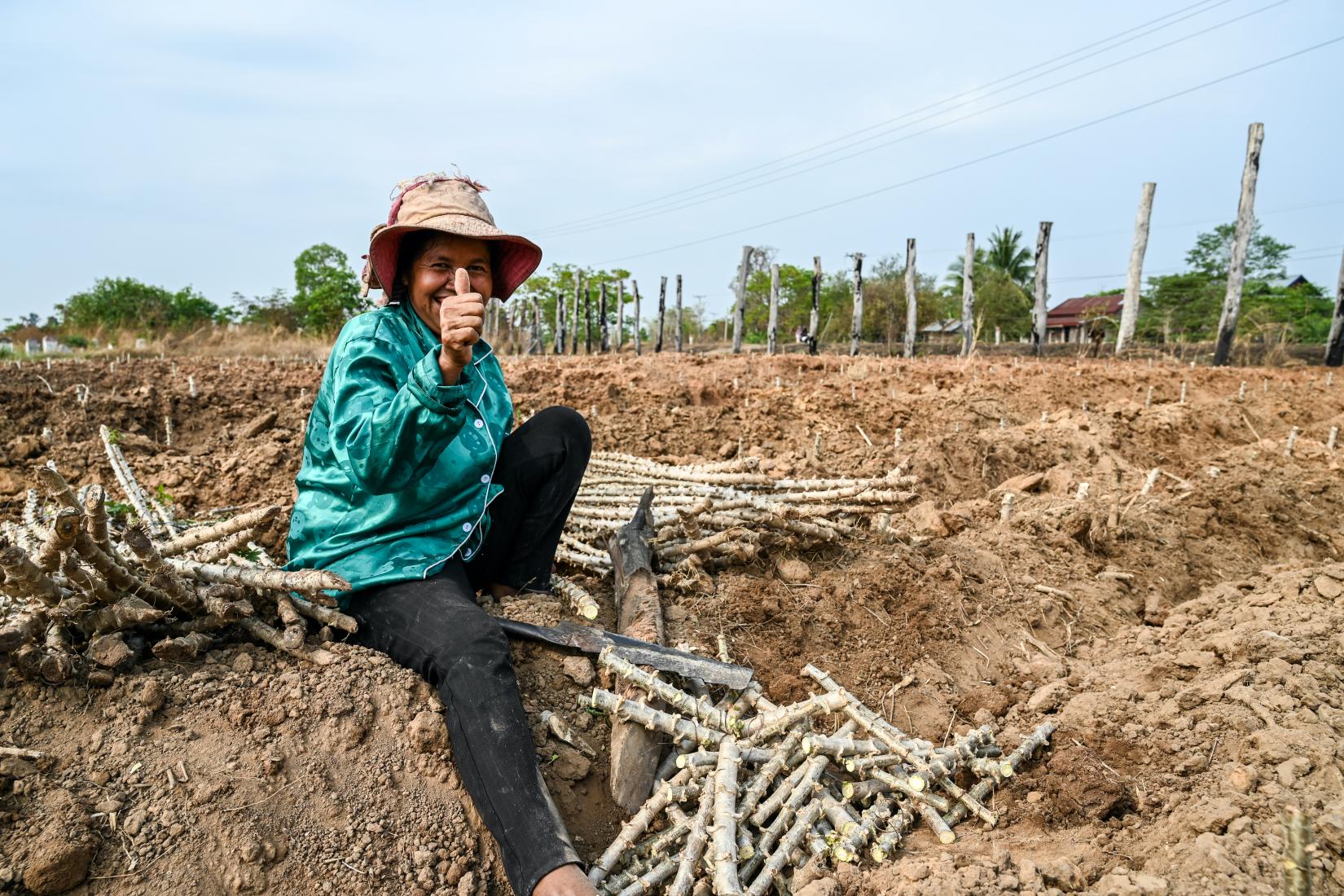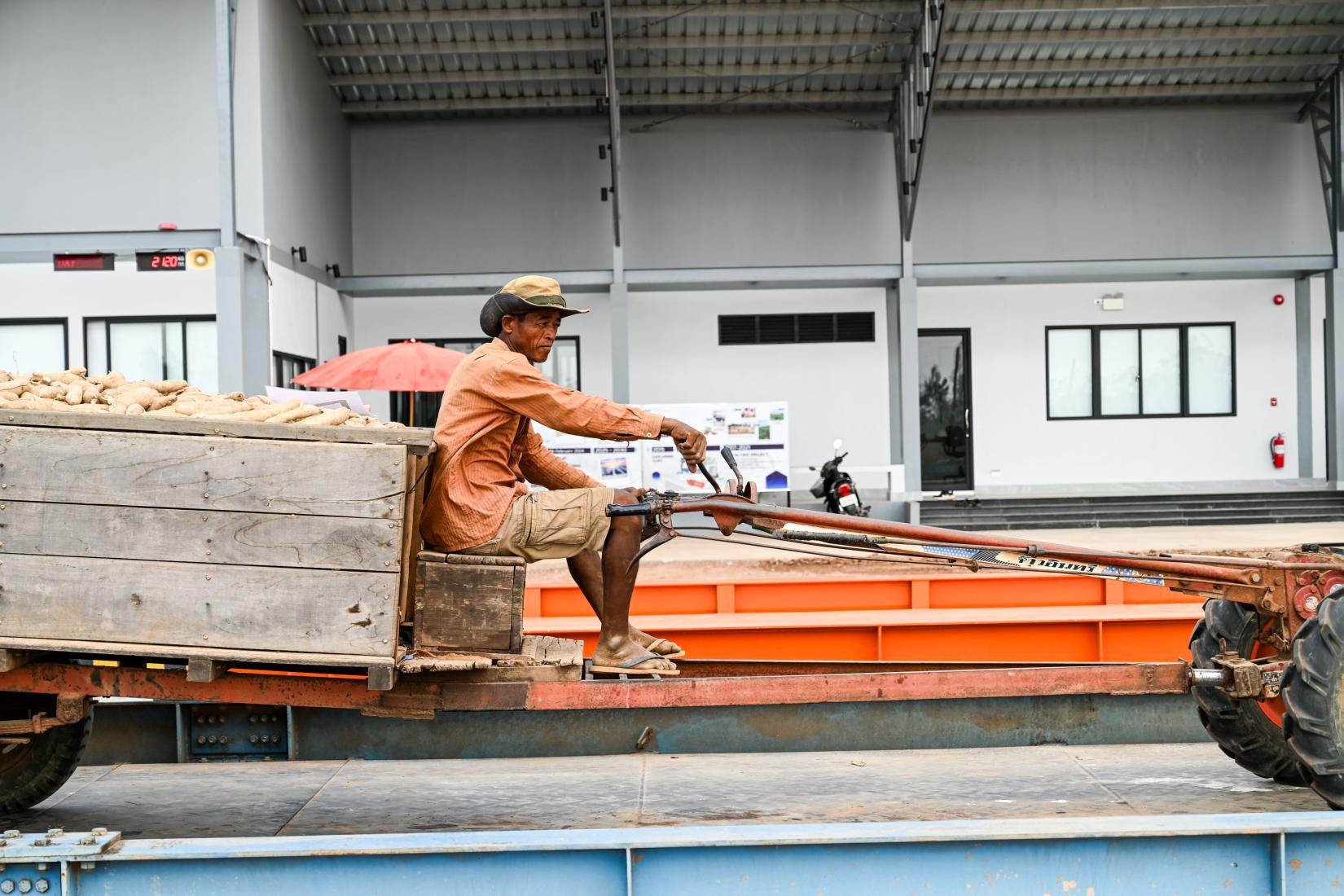A new research project funded by the Australian Centre for International Agricultural Research (ACIAR) aims to develop innovative crop production systems and technologies to ensure the sustainable growth of cassava in Laos, Cambodia and Vietnam.
Cassava is a cash crop providing significant farming income to millions of people in the Mekong, but its current cultivation as a repeated monoculture with limited inputs poses significant challenges, including reduced productivity, soil degradation and the spread of pests and diseases. The new project focuses on co-developing adoptable and scalable solutions, such as innovative cropping systems, mechanisation, disease management and digital tools to sustain cassava-based livelihoods in the region.
The new project will consult with local stakeholders and global experts, researchers and scientists to develop technologies that can help address local challenges. Local stakeholders will work closely with the research team to ensure that farmers in the area can benefit from the latest knowledge and technologies.
‘We are confident that our approach in this new project will enable us to bring together stakeholders to co-design alternative production systems that better reflect the modern production and value chain context,’ said project leader Dr Imran Malik from the International Centre for Tropical Agriculture (CIAT).
